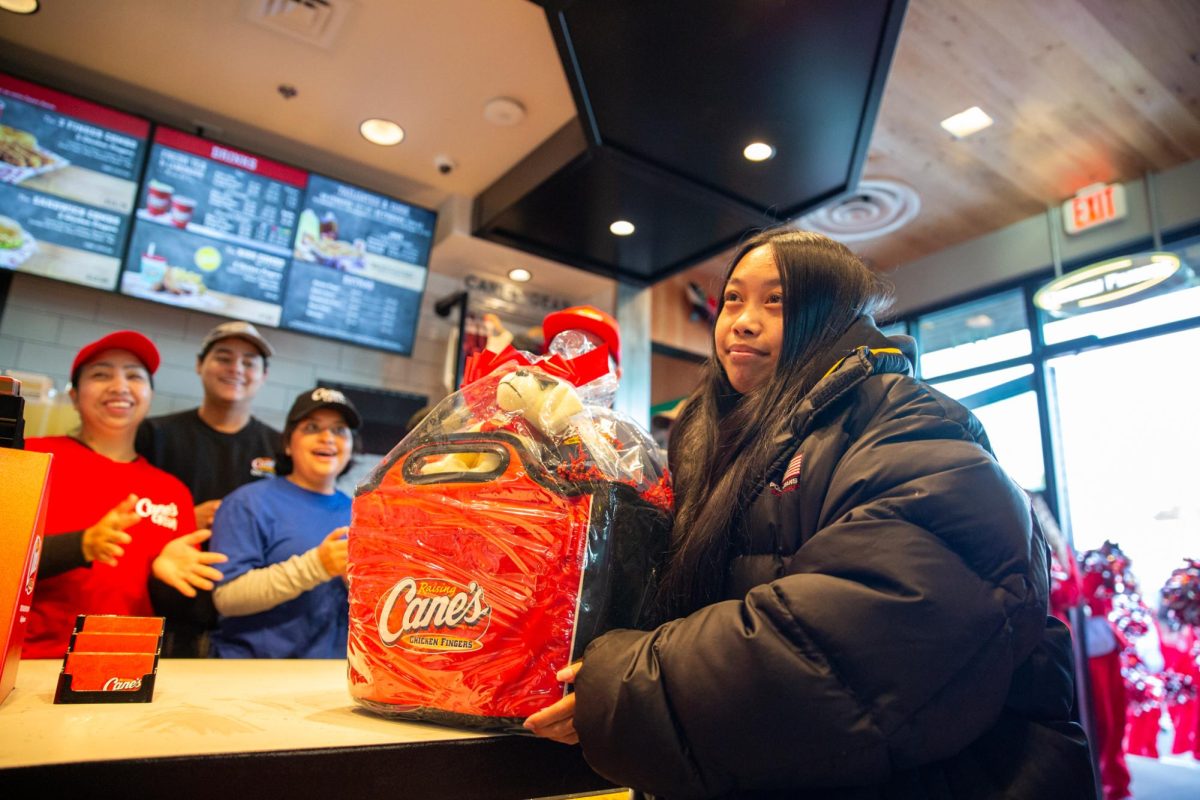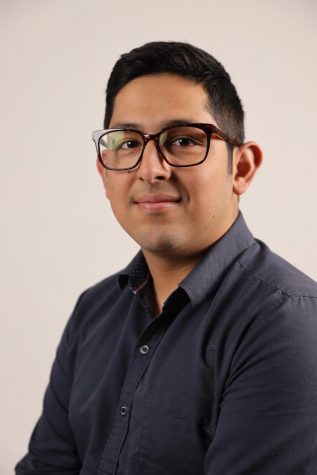Joanne Barker, the department chair for American Indian Studies (AIS) addressed a crowd on Sept. 25, kicking off the first event in a series of Red Tawks— discussions and workshops meant to commemorate the 50th anniversary of the foundation of the College of Ethnic Studies and the occupation of Alcatraz.
Thirty people filled the room, slightly more than the 27 current AIS majors and minors.
A portrait of DuBois Phillip McGee, the dean for the College of Ethnic Studies from 1980 until his death in 1999, looked over Barker’s shoulder as she introduced the guests: three Alaska Native women with doctorates. McGee was depicted immersed in shades of blue, some matching the color of Barker’s necklace.
“We wanted to think about the issues that the 50th raises … where we have been as a department, where we are going,” Barker said. “We felt that it was important to start with Alaska Native Studies because our elder, Betty Parent, is Alaska Native,” she said.
Parent, the first in the panel to be introduced, was the first Alaska Native woman to earn a doctorate, she was also the first full-time professor within the AIS department at SF State.
The discussions covered the impact of the strike and the occupation on the university as well as the experiences of Alaska Native people in higher education, the role that Parent played in helping create a space for them and the current struggles of Alaska native people in general and in academia specifically.
Parent became a lecturer for the department in 1979 a decade after the historic strike that created the college, but did not become a full professor until 1991. AIS was not offered as an undergraduate major until 2007, after Parent’s retirement.
Although Parent was not in the department long enough to see her curriculum work culminate in the degree, her colleagues created a student achievement award and named it in her honor to acknowledge her historic accomplishments and work in developing the department’s major curriculum.
One of her previous students, a Grammy-award winning musician, dedicated the earnings of an album to the Betty Parent Achievement Award to ensure it would remain funded.
That alumnus, John-Carlos Perea, has known Parent since he was very young, approximately eight years old, the same age his daughter is now, according to Parent.
“He was wonderful,” Parent said, recalling Perea as a student. I think we were both a little nervous, because who wants to take a class with their parents’ friend?”
Perea, now an associate professor for the same department, was at the first Red Tawk on Sept. 25. His partner, Dr. Jessica Bissett Perea, is an associate professor for Native American Studies at UC Davis and sat on the panel with Parent.
“One of the ways that I always grew up with the idea of Ethnic Studies is that it was community, Perea said, looking back on his time as Parent’s student. “It made the education I got that much more transformative because it was people I knew.”.
For all the progress the department has made since its creation, Barker said she tries not to “drink the Kool-Aid” and avoid addressing the work that still needs to be done. Barker points to the fact that the department has not hired any new full-time professors since 2007 when Perea was brought on.
Shawnee Sample an AIS major who is in one of Perea’s classes, shared similar sentiments.
“We have a hard time getting our classes because there are no professors available to teach the classes,” Sample said.
Barker said supporting students should be a priority. “I would hope that, going forward, that support becomes stronger,”of her hopes for the future of the department.








